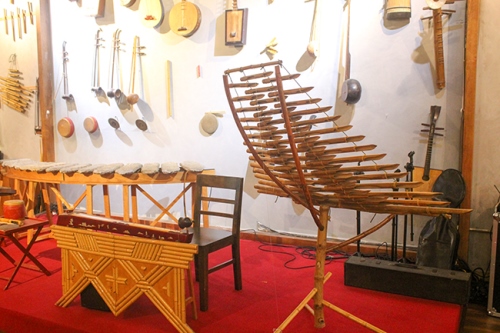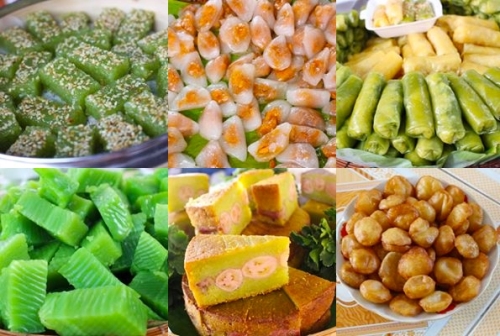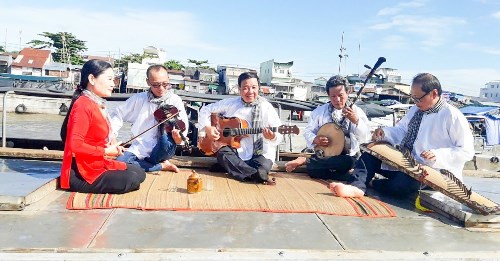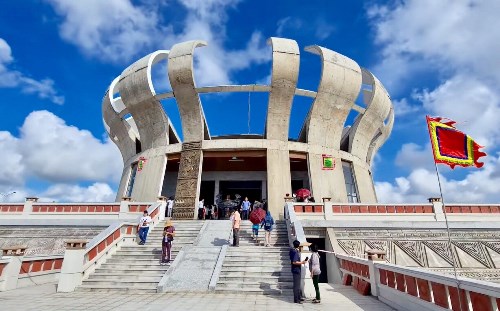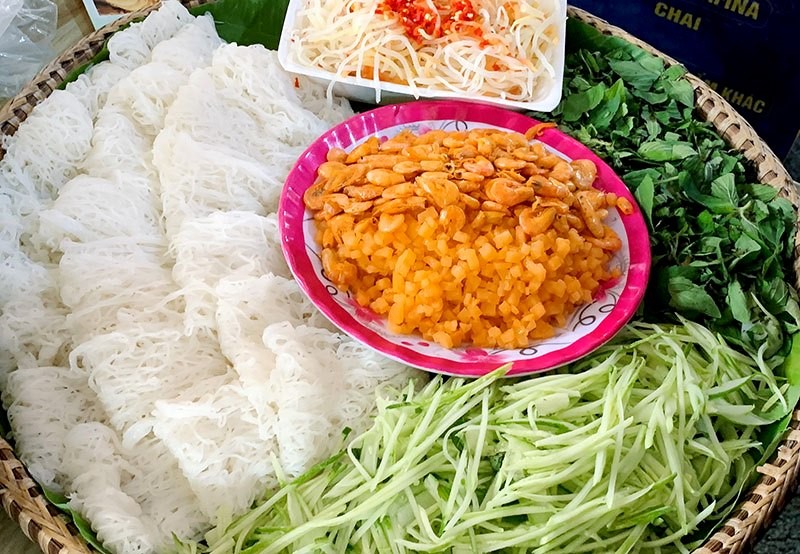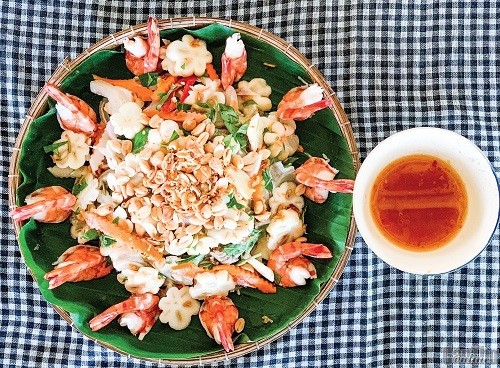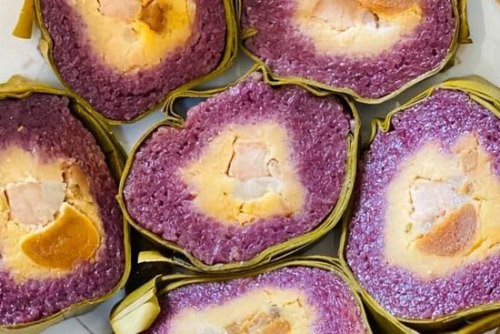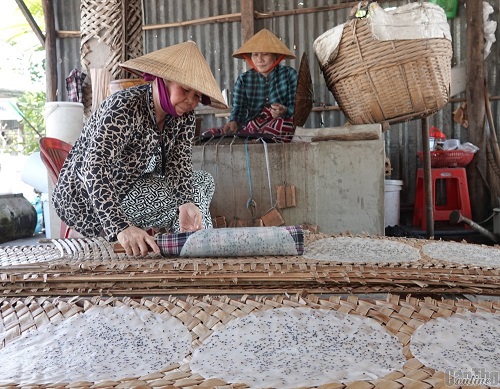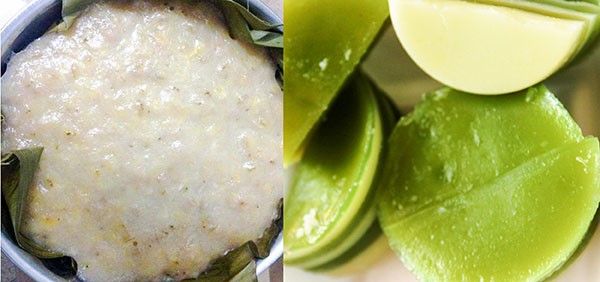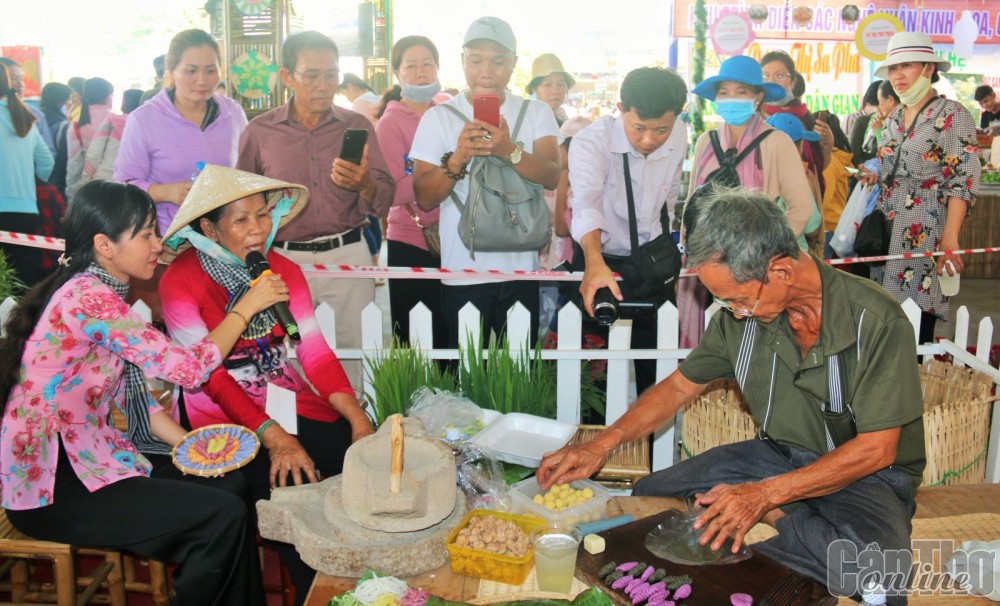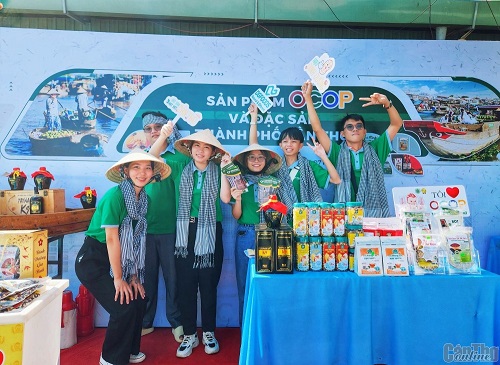
Positioning through local cultural tourism resources
Can Tho is developing various forms of tourism, with a particular focus on MICE (Meetings, Incentives, Conferences, and Exhibitions) tourism and waterway tourism. In the Special Product Development Project for Can Tho City in the 2018-2020 period, with a vision for 2030, MICE and waterway tourism are clearly defined as the main products, alongside complementary forms such as eco-tourism, craft village tourism, agricultural experience tourism, and historical-cultural heritage tourism. With these directions, Can Tho is concentrating its resources to create a diverse range of tourism products deeply rooted in the cultural heritage of its waterways. In doing so, it is striving to establish destination brands through various projects.
The project "Building, Exploiting, and Developing the Community Tourism Brand of Con Son Islet" is led by the Department of Science and Technology of the city. It aims to construct and develop the group label "Community Tourism of Con Son Islet" to optimize the potential of local cultural tourism on the islet. With this project, tourism on Con Son Islet will be professionally branded through the creation of a label and the enhancement of community tourism products, with a focus on sustainable development.
In addition to Con Son Islet, both Cai Rang Floating Market and the rice paper craft village of Thuan Hung are also undergoing projects to establish their brands. Specifically, the Project for Preserving and Developing the Cultural Heritage of Cai Rang Floating Market has been in progress since 2016, focusing on preserving and promoting the culture of the floating market in conjunction with tourism development. It also aims to transform Cai Rang Floating Market into a domestic and international tourist attraction, gradually creating distinctive branded products for Can Tho tourism. Currently, the project is being revised and supplemented in a new phase. Meanwhile, the rice paper craft of Thuan Hung (Thot Not) has been recognized as a national intangible cultural heritage and is being locally oriented towards building a brand, contributing to the preservation of the local specialty, and gradually turning the craft village into a tourist attraction.
The development and promotion of local specialties and agricultural products linked to tourism are also being coordinated by the Department of Agriculture and Rural Development and the Department of Culture, Sports, and Tourism of the city to connect OCOP (One Commune One Product) products to various tourist destinations and resorts. Recently, the OCOP Product Showcase - Specialties of Can Tho City was launched at the Nha Be rice noodle restaurant on Cai Rang Floating Market. The introduction of this showcase at the floating market opens opportunities for connecting and promoting local specialties to tourists, contributing to the preservation and promotion of the cultural value of Cai Rang Floating Market.
Integrating OCOP products with tourism is one of the directions outlined in the Rural Tourism Development Program for the construction of the new rural area until 2025 within the city's jurisdiction. This program emphasizes "promoting sustainable tourism development based on green growth, linked with rural tourism, OCOP products, and the values of local cultural resources, the strengths of each locality. Concurrently, it implements promotional and tourism promotion activities, and builds a network of exemplary rural tourism destinations linked with the construction of the new rural area."
Based on these foundations, Can Tho is focusing on developing high-quality, diverse, and distinctive tourism products that align with the city's unique identity. These products aim to provide experiential value and high-added value in line with market trends and are tailored to the needs of different target audiences. The city is also working on building and implementing pilot models for rural tourism development with a focus on green, responsible, and sustainable tourism. This gradual approach aims to establish a sustainable tourism brand.
Sustainable development is closely linked to diversifying tourism products.
The Can Tho Tourism Association and the Department of Culture, Sports, and Tourism of the city are collaborating to establish a set of sustainable tourism criteria. Can Tho is developing six sets of criteria and indices for sustainable tourism, which will be applied to six types of small and medium-sized tourism businesses: hotels, travel agencies, eco-lodges, community-based tourism, homestays, and tourist attractions. At the same time, the city is focusing on building brands and sustainable tourism products with a particular emphasis on key products such as Mekong River tourism, agricultural tourism, craft villages, and Can Tho cuisine. This includes a strong focus on the cultural heritage of the waterways and local values.
The Can Tho tourism industry is also positioning its brand clearly with the aim of transforming the city into an "Ideal, Safe, and Friendly Tourist Destination" and the gathering place for the "Cultural Essence of the Mekong Delta" by 2030. On this basis, a series of projects are being implemented to develop distinctive products, such as "Developing Can Tho River Tourism" and "Developing Agricultural Tourism in Can Tho City for the 2021-2025 period, with a vision to 2030." Through these projects, the city is focused on building distinctive tourism products that leverage its strengths in river tourism and agriculture.
Regarding river tourism, Can Tho currently operates two main routes: Ninh Kieu - Cai Rang - Phong Dien and Ninh Kieu - Binh Thuy. These routes primarily use small boats and navigate through the intricate network of rivers and canals. The city's river tourism is also expanding to explore routes along the islets in the Hau River, routes like Ninh Kieu - Thot Not, Binh Thuy - Thot Not, interprovincial connections between Can Tho - An Giang, Can Tho - Vinh Long, Can Tho - Dong Thap, and Can Tho - Ho Chi Minh City. Furthermore, there are connections along the Mekong River: Can Tho - Cambodia - Laos, Can Tho - Cambodia... Concurrently, the city is improving the quality of river tourism vehicles and products, including cruise ships, canoes, and high-speed boats.
As for agricultural tourism, Can Tho aims to effectively utilize agricultural resources for sustainable tourism development. This includes enhancing the competitiveness of agricultural products and diversifying the tourism product and service offerings in Can Tho. The city intends to build the brand of agricultural tourism in Can Tho and implement pilot models for agricultural tourism development, with a particular focus on districts such as Phong Dien, Cai Rang, Binh Thuy, and Thot Not.
Diversifying tourism products to leverage the potential of local resources and cultural values in a sustainable manner is the strategy that Can Tho has chosen to build its city's tourism brand. In this context, positioning the destination brand is seen as the initial step to standardize and create high-quality products that can attract tourists.
Source: Can Tho News - Translated by Hoang Dat





